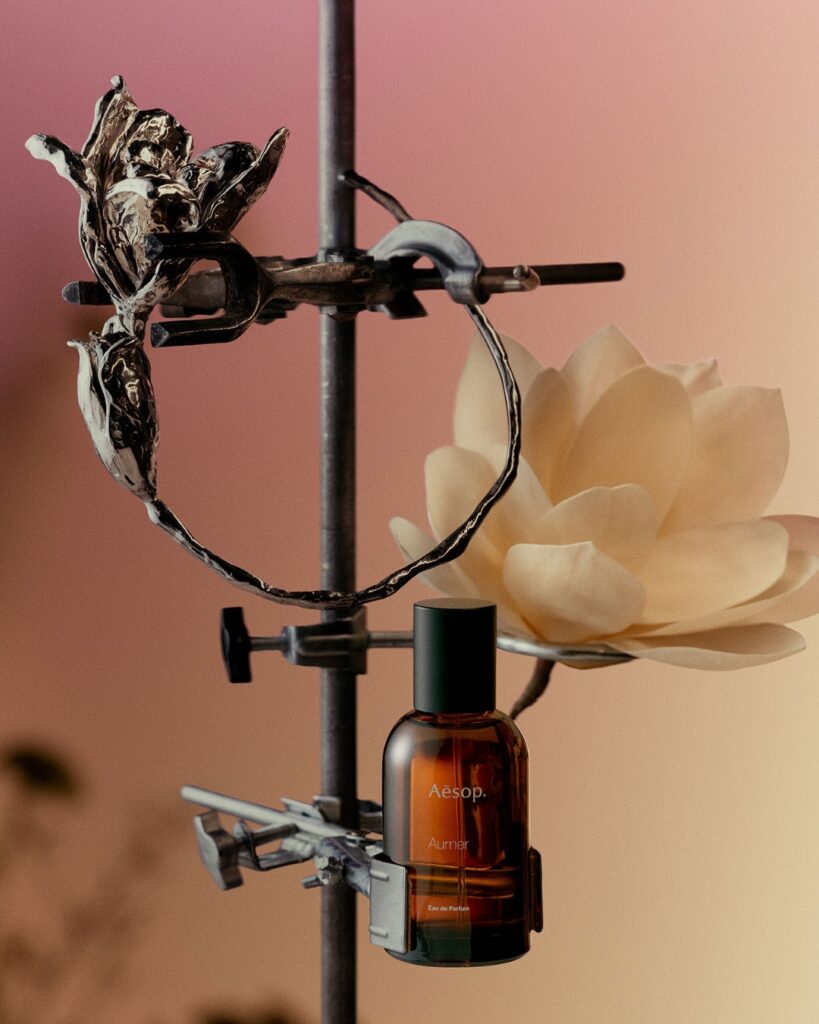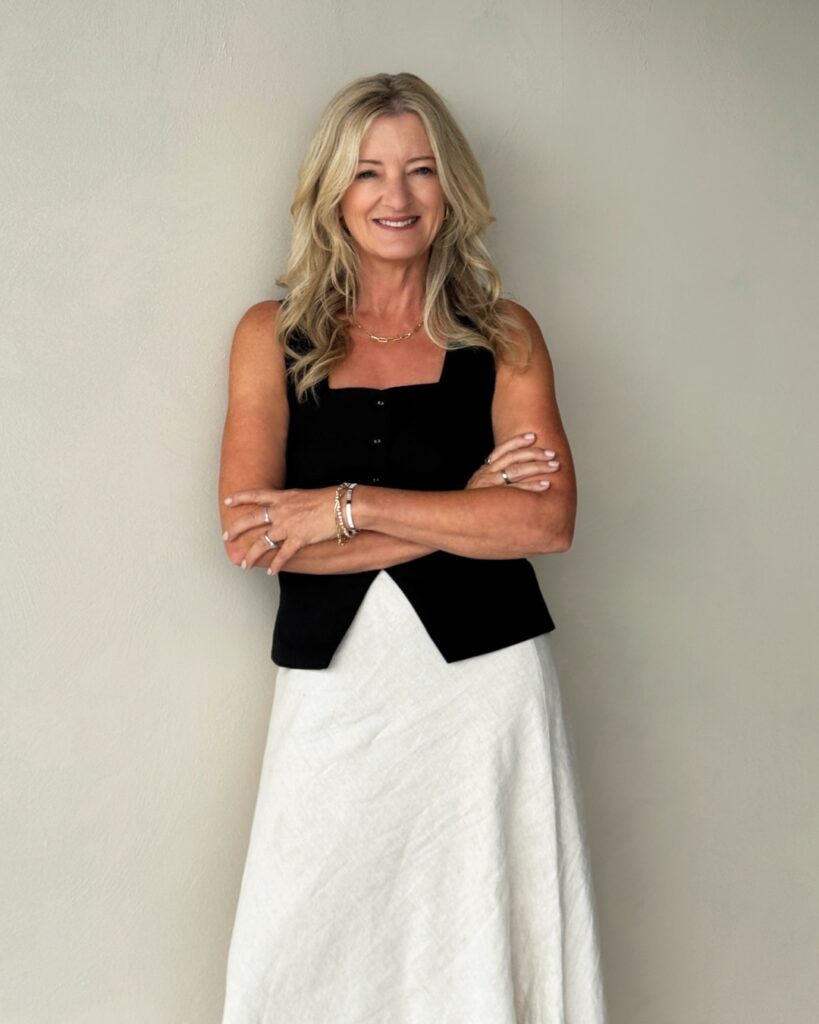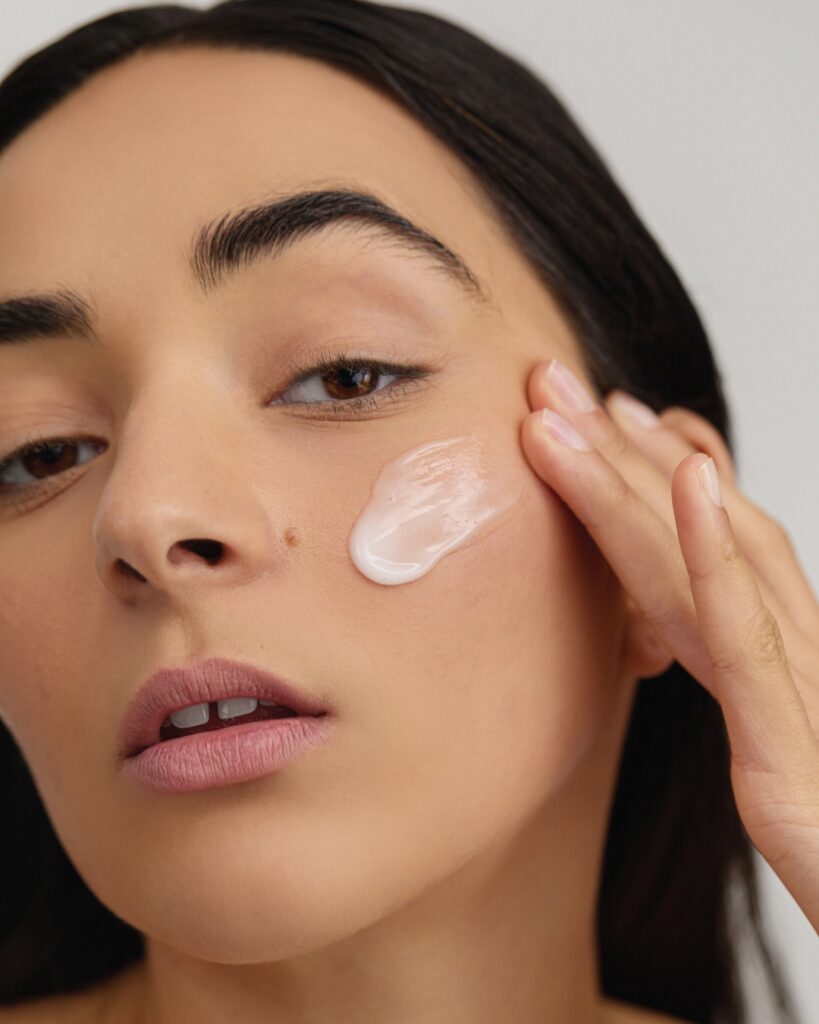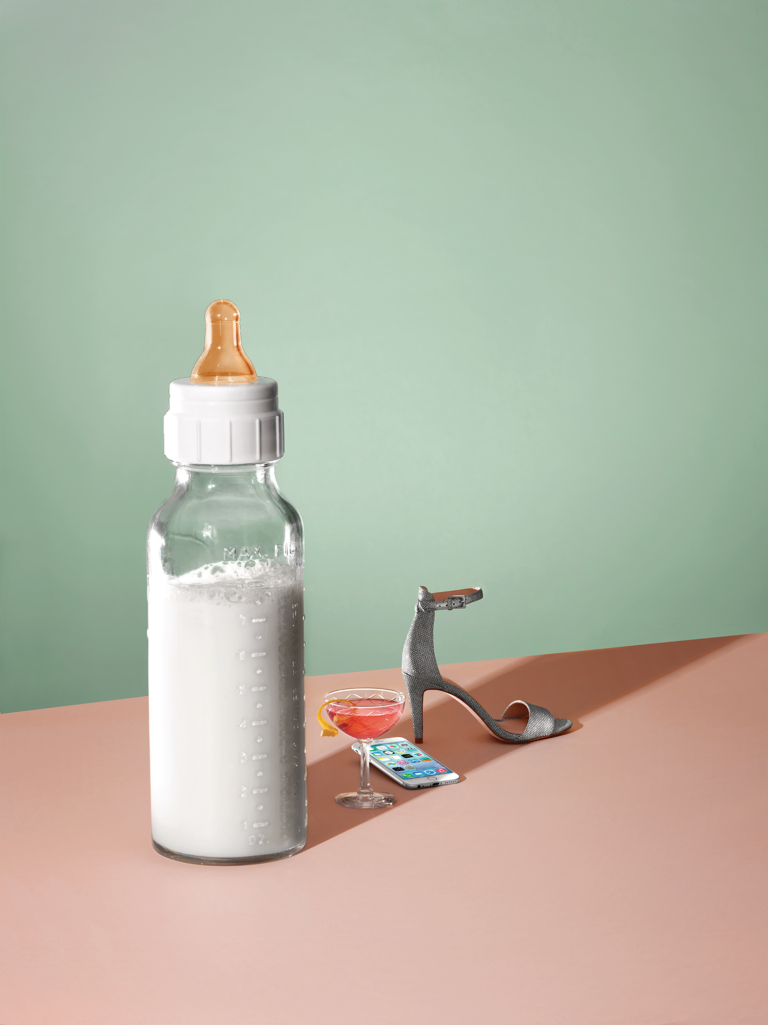
On a recent Saturday morning at 2am, after a rather late starting dinner party, I found myself sitting at a table flanked by two women I barely knew discussing our reproductive systems. As one spoke about the age her mum hit menopause and whether it’s genetic, I surveyed the scene around us. At the other end of the room, the men were taking part in a heated discussion—about what constitutes the perfect KFC order. Simultaneously I learnt that the KFC in Manukau, Auckland is, for some reason unknown to its avid fans in the kitchen, the only branch in New Zealand to have hot and spicy chicken all year round, and that, yes, according to studies, genetics do play a role in the age women start menopause.
The scenario would’ve been comical if it wasn’t becoming an increasingly regular scene as I approached 30. Despite us now living longer, marrying later and women having more opportunities in the workplace, our biology and science hasn’t caught up. While men continue on into their late 20s, 30s and beyond in a somewhat perpetual adolescence, women must still caveat each and every decision—about work, romance, travel, homes, savings, family—with the one choice that’s impossible to reverse and has a biological deadline: whether or not to have a baby.
As a teenager, I’d wanted to rebel against societal norms and would loudly declare to anyone who’d listen that I didn’t want to—and never would—have children. As I got older and continued to feel less maternal than a lot of my friends, I stopped screaming my uneducated and possibly triggering opinion at people. But I didn’t stop to give the question of reproduction any serious consideration. When you have a partner, a significant part of the stress surrounding the potential of parenthood is taken away. Even if you’re not sure, if you’re not ready, you have the mechanics necessary should you change your mind. So when I found myself single at 29, it felt like the question I’d been so nonplussed about was being answered for me. Equally as suddenly, I worried that I should have given it a bit more thought.
In May, Naomi Campbell announced she’d became a mother for the first time aged 50, As far as the public knows, she did it alone. Though I knew there was no urgency to figure out how I felt about babies—or even a need to find someone to maybe make one with—I couldn’t help but start adding up the sums. It took me three years to find my last boyfriend, so that takes me to potentially 32. You want at least 12 months to figure out if you actually get on with the person—33. A year, maybe two, of trying, now we’re at 35. What age was womens’ fertility supposed to drastically decline again?
After going through a similar reckoning about life and fertility, British journalist and author Nell Frizzell realised there was no term to describe the way women all around her were feeling. The lack of conversation—and lack of name for it—made women feel they were going through an individual private crisis, which Frizzell actually thinks is more akin to a social movement. She dubbed the period, The Panic Years, and released a book by that name earlier this year dedicated to helping women navigate them better.
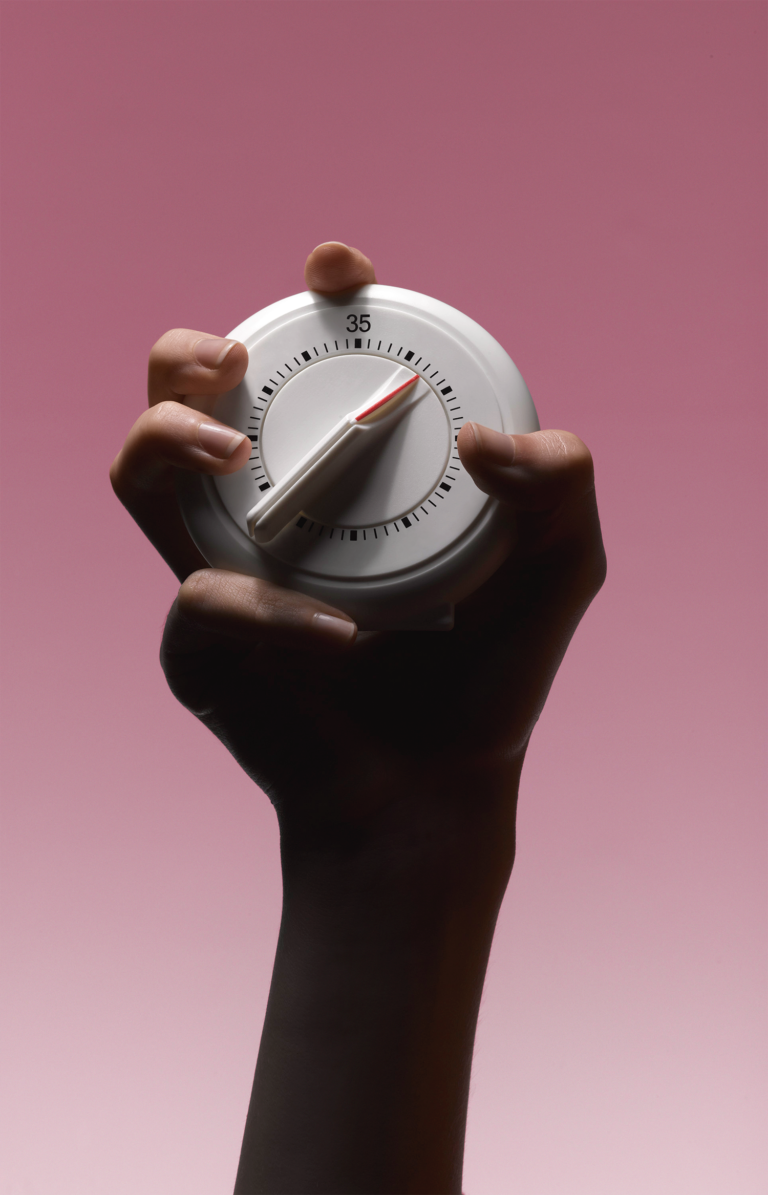
“In my late 20s, it suddenly felt as if everyone was buying houses, or moving country, or retraining. They were getting pregnant, getting married, and making huge, life-changing decisions,” Frizzell tells me over Zoom. “Later, I realised a lot of the massive life changes had to do with people sort of understanding on a physical level something which until then they’d only abstractly thought about: if you want children, there’s only a certain window of time you have to try to make that happen. I realised I had to not only psychologically make that decision, and think rationally and emotionally about whether it was something I wanted, but, if I was lucky enough to be able to get pregnant, I needed to build my life into a place where it could sustain children.”
Growing up in the golden age of rom coms, it was hard to reckon with the fact that I would be facing my next decade no closer to buying a house than I was entering the last, and I was no closer to definitively answering the question about whether or not I wanted kids, apart from the addition of dating someone who “definitely doesn’t want them!” before noting, after a bit of probing, they may change their mind “later”. My teenage self—and new boyfriend—will be pleased to know that, for the most part, I still lean towards the ‘no’ box when it comes to having children of my own. But what if suddenly baby fever kicks in when it’s too late? Even if I did want kids, am I really ready? Is anyone? What about the climate?!
Though unnecessary pressure can be placed on a 30th birthday, for women considering children, 35 is the real kicker—the age we’ve been told time and time again that our fertility will nosedive off a cliff. What we aren’t taught is that this information is not only scientifically unreliable, taken from studies done hundreds of years ago, but it’s not that accurate either. As Jean M Twenge wrote for The Atlantic in 2013, which was also referenced in The Panic Years, “The widely cited statistic that one in three women ages 35 to 39 will not be pregnant after a year of trying…is based on an article published in 2004 in the journal Human Reproduction. Rarely mentioned is the source of the data: French birth records from 1670 to 1830. The chance of remaining childless—30 per cent—was also calculated based on historical populations. In other words, millions of women are being told when to get pregnant based on statistics from a time before electricity, antibiotics, or fertility treatment.” So in reality, there is no ‘cliff’ per se, but rather a slow decline, which is less dramatic than we’ve been led to believe.
This isn’t to say women everywhere should be parking this conversation and picking it back up at the elusive ‘later’ date, which most cisgender, heterosexual men would prefer. Fertility does decline with age, and the rate at which it declines in individual women is still currently impossible to predict. The success of IVF treatments decreases as you get older while the rate of miscarriages and birth defects increases. Since we were children, we have been bombarded with messages about our ticking biological clock and, as we’ve gotten older, most of us have been privy to the heartbreak, stress, and trauma that can come with trying.
In recent years, I’ve watched friends, colleagues and family members endure miscarriages, stillbirths, and failed IVF treatments. I’m all too aware of what can go wrong, and want to at least make up my mind about what I want in a time frame that will hopefully minimise the chances of a devastating situation happening.
Advances in technology have meant companies can keep women in their most career-hungry state for longer, offering them egg-freezing in return for an extra few years of hard work and dedication. But, though popping a few eggs into storage until we’ve reached our career goals sounds great, the reality is our science hasn’t caught up with our politics as much as we would like to think. The fertility industry may seem like a lifeline, but it can prey on vulnerable women and IVF and egg-freezing is a privilege afforded only to those who can foot the, generally enormous, bill. If unsuccessful, it can be traumatic and heartbreaking for those involved.
It’s stressful to read the above, but it’s also important we don’t bury our heads in the sand just because something scares us. We should be aware of the limits of our bodies and of science. “We live in a consumerist, capitalist culture. The way we use contraception and the world of work distracts us from two absolute certainties,” Frizzell says, “One is that as someone with a womb, at some point, you’re not going to be able to bear children. The other is that as someone with a human body, at some point, you’re going to die. These two things are unavoidable, and we don’t know when either of them are going to happen, which is, of course, going to make us freak out. But the only way to not freak out is to think about it and talk about it.”
That these conversations and fears about fertility sit squarely on the shoulders of women is unfair, but through societal conditioning, we have been made to feel as though the question of children is a woman’s problem. Parenthood is one of the only decisions a person ever makes that is impossible to take back, but despite all of the reasons to be tackling this huge, life-altering choice with more discussion and consideration than any other in our lives, women around me say they often feel as though they’re nags should they bring the topic up with their partners. The result is women too often pushing aside their own wants and fears to accommodate others, and they may even end up lying
to themselves and each other about what it is they
really desire.
“The way I’ve started to unpack it is by talking to people like trans men and others who have had children in non-traditional set-ups to figure out whether this is biology or if it’s conditioning,” says Frizzell. “The thing that keeps coming back over and over again is this is basically conditioning. Cisgendered heterosexual men are not encouraged to think about having children, what they want their life to look like, or what kind of relationship they want to have until they have absolutely wrung out every drop of ‘fun.’”
In reality, men should be more concerned than they are about whether or not they want children. For decades, scientists have been documenting a steady decline of sperm count. In 2017, Shanna Swan, an environmental and reproductive epidemiologist at Icahn School of Medicine at Mount Sinai, co-authored a study that found that sperm counts in the west had plummeted by 59% between 1973 and 2011. The study made world headlines, but, because most of the women I know weren’t yet inducted into The Panic Years, we, and therefore the men around us, missed the memo. Even more terrifying, in her book Count Down released February 2021, Swan said that following current projections, sperm counts are set to reach zero in 2045. Hot and spicy, indeed.
Though science hasn’t caught up as much as we’d like, now there are more options to explore than ever before. You could have a child alone, or team up with a friend who wants one, which could result in a better set-up than a lot of families, and which is most definitely better than desperately running around trying to find a man to reproduce with. There’s adoption, something I personally think is not explored enough given how ‘woke’ millennials are supposed to be, and there’s the very valid choice of being child free.
Frizzell recommends really questioning all of the stories you tell yourself about who you are and what you want. “If your story is that you want to have a baby, interrogate that: what is it you want from having a baby?” she asks. “Is it unconditional love? Is it a partner who is in some way interconnected with you for life? Is it feeling special on the bus? Is it the titanic accomplishment of giving birth? It might be three or four, or none of those things,” Frizzell explains. “These reasons aren’t wrong or invalid, but underneath every supposed desire, there is a whole range of smaller, truer desires you can achieve through different means. You don’t have to have a baby to experience a sense of purpose. You don’t have to be in a relationship to not feel lonely. You don’t have to have a good job to live on your own. If you drill down to what it is you really want, stripped away from this blanket narrative of social convention, you are much more likely to be able to achieve it than if you thrust around in a general area of something you call ‘having a baby.’”


